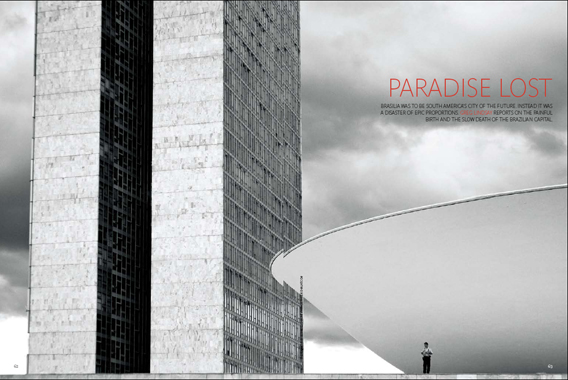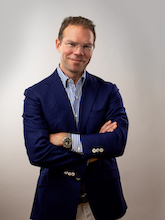
















“Brasilia is artificial – as artificial as the world must have been when it was created,” wrote acclaimed Brazilian writer Clarice Lispector following a visit in 1962, after the new capital had just turned two years old. The instant city had risen from Brazil’s dry inland plateau in 41 feverish months, ahead of schedule in President Juscelino
Kubitschek’s campaign promise to deliver “50 years of progress in five.”
The postcard-ready edifices were in place by then – the flying saucers atop the National Congress, the concrete ribs of the Cathedral, the dainty colonnades of Itamaraty Palace – courtesy of architect Oscar Niemeyer, whose teacher, Lucio Costa, had designed the master plan. Costa did away with neighbourhoods and streets, replacing them with residential superblocks and superspeedways aligned along the Great Axis and Monumental Axis. The result was a city best seen from above, laid out in a pattern resembling a bird – or a plane. At ground level, the vast, windswept plazas swallowed people, crowds, and any semblance of street life.
“If they took my picture standing in Brasilia, only the landscape would appear,” Lispector imagined, awed by the inhuman scale of the place. “The two architects who planned Brasilia were not interested in creating something beautiful. That would be too simple; they created their own terror, and left that terror unexplained. Creation is not an understanding. It is a new mystery.”
The mystery confronting visitors 50 years later is why its creators ever thought Brasilia would succeed – not just in overturning 5,000 years of urbanism, but in Kubitschek’s aim of “a complete break with the past, a possibility to re-create the destiny of the country.” Made-to-order capitals were nothing new by 1956 – Washington D.C. was one – but in rejecting Brazil’s colonial heritage outright in favour of a utopian future, the president and his architects guaranteed their plans would be undone by messy reality.
(For the complete story, please download a PDF version here.)


» Folllow me on Twitter.
» Email me.
» See upcoming events.

Greg Lindsay is a generalist, urbanist, futurist, and speaker. He is a non-resident senior fellow of the Arizona State University Threatcasting Lab, a non-resident senior fellow of MIT’s Future Urban Collectives Lab, and a non-resident senior fellow of the Atlantic Council’s Scowcroft Strategy Initiative. He was the founding chief communications officer of Climate Alpha and remains a senior advisor. Previously, he was an urban tech fellow at Cornell Tech’s Jacobs Institute, where he explored the implications of AI and augmented reality at urban scale.

----- | January 22, 2024
The Future of Generative AI in Architecture, Engineering, and Construction
----- | January 1, 2024
----- | August 3, 2023
CityLab | June 12, 2023
Augmented Reality Is Coming for Cities
CityLab | April 25, 2023
The Line Is Blurring Between Remote Workers and Tourists
CityLab | December 7, 2021
The Dark Side of 15-Minute Grocery Delivery
Fast Company | June 2021
Why the Great Lakes need to be the center of our climate strategy
Fast Company | March 2020
How to design a smart city that’s built on empowerment–not corporate surveillance
URBAN-X | December 2019
CityLab | December 10, 2018
The State of Play: Connected Mobility in San Francisco, Boston, and Detroit
Harvard Business Review | September 24, 2018
Why Companies Are Creating Their Own Coworking Spaces
CityLab | July 2018
The State of Play: Connected Mobility + U.S. Cities
Medium | May 1, 2017
Fast Company | January 19, 2017
The Collaboration Software That’s Rejuvenating The Young Global Leaders Of Davos
The Guardian | January 13, 2017
What If Uber Kills Public Transport Instead of Cars
Backchannel | January 4, 2017
The Office of the Future Is… an Office
New Cities Foundation | October 2016
Now Arriving: A Connected Mobility Roadmap for Public Transport
Inc. | October 2016
Why Every Business Should Start in a Co-Working Space
Popular Mechanics | May 11, 2016
Can the World’s Worst Traffic Problem Be Solved?
The New Republic | January/February 2016

January 31, 2024
Unfrozen: Domo Arigatou, “Mike 2.0”
January 22, 2024
The Future of Generative AI in Architecture, Engineering, and Construction
January 18, 2024
The Promise and Perils of the Augmented City
January 13, 2024